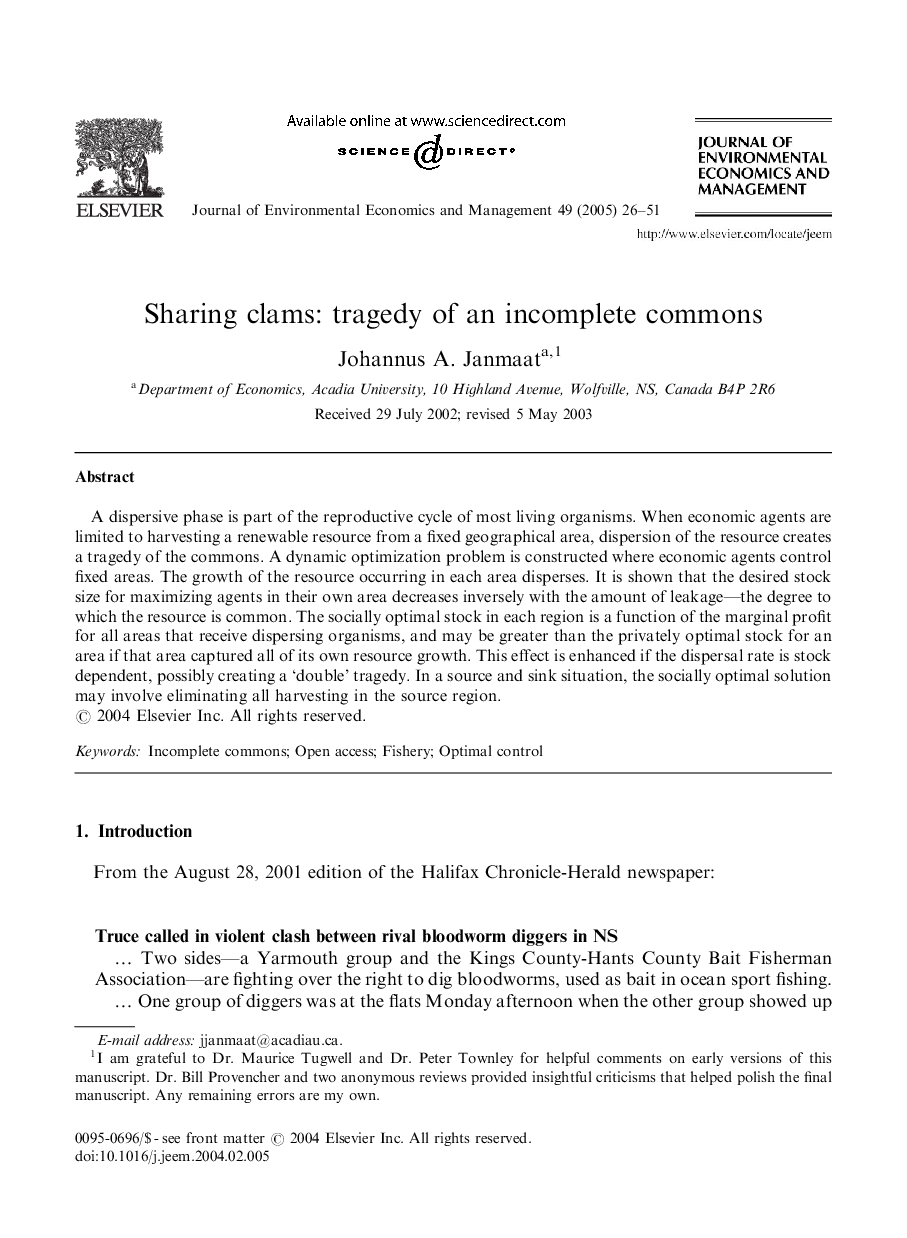| Article ID | Journal | Published Year | Pages | File Type |
|---|---|---|---|---|
| 10475462 | Journal of Environmental Economics and Management | 2005 | 26 Pages |
Abstract
A dispersive phase is part of the reproductive cycle of most living organisms. When economic agents are limited to harvesting a renewable resource from a fixed geographical area, dispersion of the resource creates a tragedy of the commons. A dynamic optimization problem is constructed where economic agents control fixed areas. The growth of the resource occurring in each area disperses. It is shown that the desired stock size for maximizing agents in their own area decreases inversely with the amount of leakage-the degree to which the resource is common. The socially optimal stock in each region is a function of the marginal profit for all areas that receive dispersing organisms, and may be greater than the privately optimal stock for an area if that area captured all of its own resource growth. This effect is enhanced if the dispersal rate is stock dependent, possibly creating a 'double' tragedy. In a source and sink situation, the socially optimal solution may involve eliminating all harvesting in the source region.
Keywords
Related Topics
Social Sciences and Humanities
Economics, Econometrics and Finance
Economics and Econometrics
Authors
Johannus A. Janmaat,
